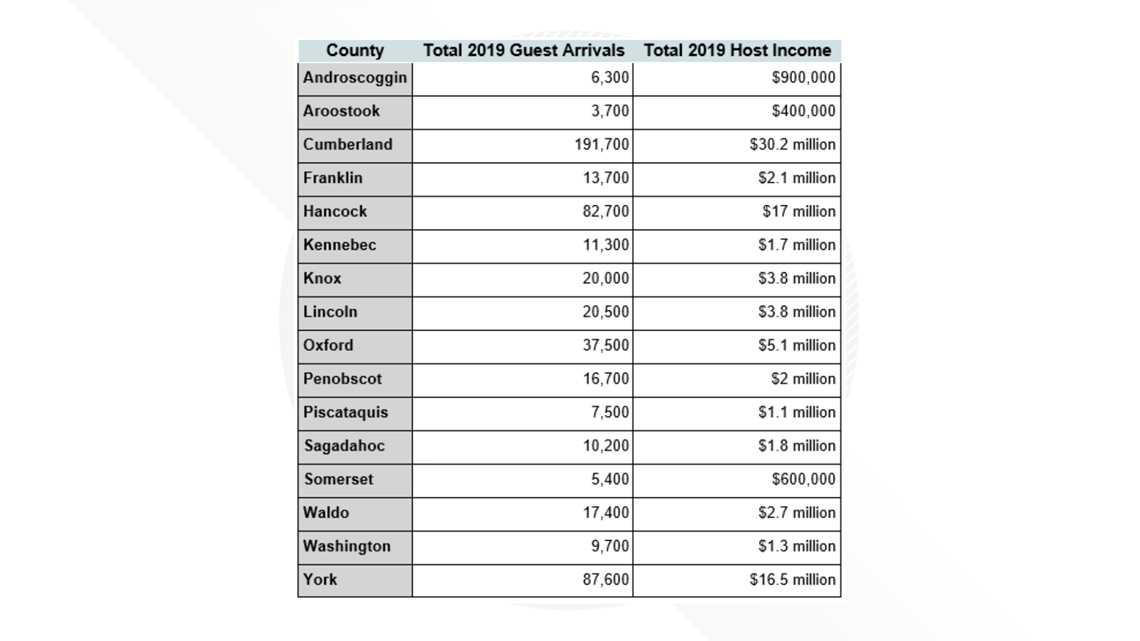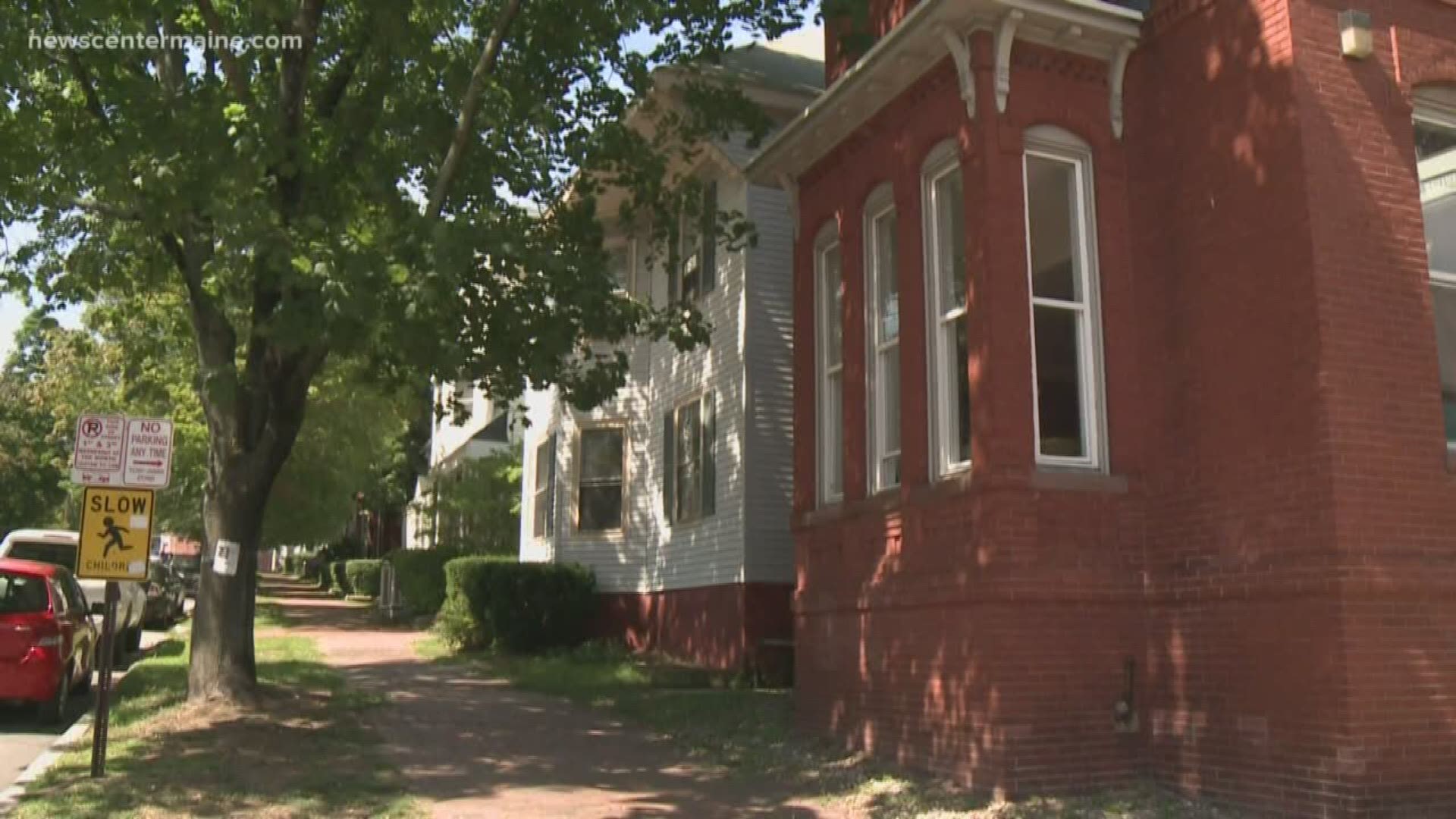AUGUSTA, Maine — Vacationland visits are paying off for some Maine Airbnb hosts. The short-term rental company released it's 2019 numbers on Tuesday for the state.
During the busiest peak tourism weekends in the summer, 113,800 guests stayed and Maine hosts brought in $31.1 million in supplemental income. Hosts earned more than $89.2 million over the course of the year with 541,900 people experiencing Airbnb in Maine.
Maine's General Fund saw over $8 million from Airbnb rentals alone thanks to the 9% lodging tax.
“2019 was another great year for Airbnb in Maine, with more local residents embracing the economic opportunities offered by home-sharing -- and small businesses and entire communities benefiting as a result,” said Josh Meltzer, Head of Northeast Public Policy for Airbnb.
HospitalityMaine, a non-profit trade group, formally known as the Maine Innkeepers Association and the Maine Restaurant Association, says eateries across the state are seeing positive impacts from short-term rental visitors.
“We got a lot of business from people staying in Airbnbs," said Steve Hewins, the President and CEO of HospitalityMaine. "[It's] a very symbiotic relationship between accommodations, short-term rentals, and restaurants or otherwise. It’s very important to support each other.”


Airbnb says 92% of their hosts recommend nearby restaurants and cafes to their guests. Now Maine is in need of staff to support the uptick in diners.
Hewins believes short-term rental properties are taking over apartment buildings and homes in cities and towns leading workers, many in the restaurant industry, to live farther away from work. A lack of mass transit in Maine hinders hospitality workers from commuting to jobs that need to be filled.
“…In many coastal communities like Portland, South Portland and places like Bar Harbor and Ogunquit is that Airbnbs are taking up the workforce housing in the community,” said Hewins. “We are concerned that that is going to put a brake on the growth of the industry because we don’t have enough people right now to work in it.”
HospitalityMaine sides with the short-term rentals sector because of its boost to the state’s revenue, but is also for individual communities dictating how they want to manage it.
Hewins says major hotel chains in the state appear to be unaffected by the rise in short-term rental usage. Inns and Bed and Breakfasts are having more of a problem keeping up because of licensing and regulations. Sites like Airbnb, VRBO, and HomeAway do not have to comply with the same zoning and life safety codes as hotels, according to HospitalityMaine

